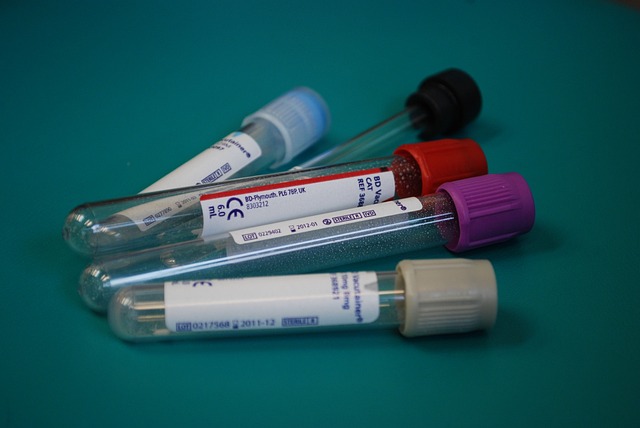Diabetes, a global epidemic affecting millions, is characterized by high blood sugar due to insulin issues. Early detection through simple diabetes blood tests is vital for managing the condition and preventing complications like heart disease, nerve damage, kidney problems, and vision loss. These tests measure blood sugar levels (70-130 mg/dL), with sustained levels above 126 mg/dL indicating prediabetes or diabetes. Qualified experts interpret results, leading to personalized lifestyle changes, exercise routines, diet plans, or medication advice for effective blood sugar management. Regular medical consultations are key to successful long-term health outcomes for diabetes patients.
“Diabetes, a prevalent metabolic condition, demands proactive management through regular screening. This article explores the significance of diabetes screening and expert medical consultation. Understanding diabetes involves knowing its risk factors and symptoms, emphasizing the need for early detection through simple procedures like the diabetes blood test.
We’ll guide you through what to expect during this test and highlight the advantages of consulting healthcare professionals for personalized diabetes management strategies.”
- Understanding Diabetes and the Need for Screening
- What to Expect During a Diabetes Blood Test
- Benefits of Expert Medical Consultation for Diabetes Management
Understanding Diabetes and the Need for Screening
Diabetes is a chronic condition that affects millions worldwide, characterized by elevated blood sugar levels. It arises from either insufficient insulin production or the body’s inability to effectively utilize insulin. Insulin is a hormone that regulates glucose metabolism, and its imbalance can lead to various complications over time. Regular diabetes screening through simple diabetes blood tests is essential for early detection and management.
The need for screening stems from the fact that type 2 diabetes, the most common form, often develops silently. Many people may not exhibit symptoms initially, making it detectable only when complications arise. Early identification allows for lifestyle modifications and timely medical intervention to prevent or delay the progression of the disease, thereby reducing the risk of heart disease, nerve damage, kidney problems, and vision loss.
What to Expect During a Diabetes Blood Test
During a diabetes blood test, a healthcare provider will typically check your blood sugar levels using a small sample of your blood. This is usually done through a finger prick or, in some cases, a blood draw from a vein. The test measures the amount of glucose (sugar) present in your blood at that moment. Normal blood sugar levels range between 70 to 130 mg/dL (milligrams per deciliter), while levels above 126 mg/dL on two separate tests may indicate prediabetes or diabetes.
After the test, a qualified expert will interpret the results and discuss them with you. They’ll explain what your numbers mean and whether they fall within the healthy range. Depending on the outcome, your doctor might recommend lifestyle changes, such as dietary adjustments and increased physical activity, or prescribe medication to help manage your blood sugar levels effectively.
Benefits of Expert Medical Consultation for Diabetes Management
Expert medical consultation plays a pivotal role in effective diabetes management, offering numerous advantages that extend far beyond basic diabetes blood test results. Firstly, specialized doctors can provide personalized guidance tailored to each individual’s unique health profile and lifestyle. This includes diet plans, exercise routines, and medication advice designed to optimize blood sugar control. Furthermore, regular consultations enable continuous monitoring of a patient’s condition, allowing for swift adjustments to treatment plans as needed.
Additionally, expert consultation fosters a deeper understanding of diabetes, empowering individuals to actively participate in their healthcare. Educated patients are better equipped to recognize early warning signs of fluctuating blood sugar levels and make informed decisions regarding their diet, exercise, and medication adherence. This proactive approach not only enhances overall diabetes management but also significantly contributes to improving long-term health outcomes.
Diabetes screening, coupled with expert medical consultation, is a powerful tool in managing this prevalent condition. Understanding the importance of early detection and regular testing, as highlighted by the diabetes blood test, is key to preventing complications. The benefits of professional guidance throughout the process are significant, offering personalized care, education, and ongoing support for those living with diabetes. By embracing these steps, individuals can take control of their health and navigate their diabetes journey with confidence.
